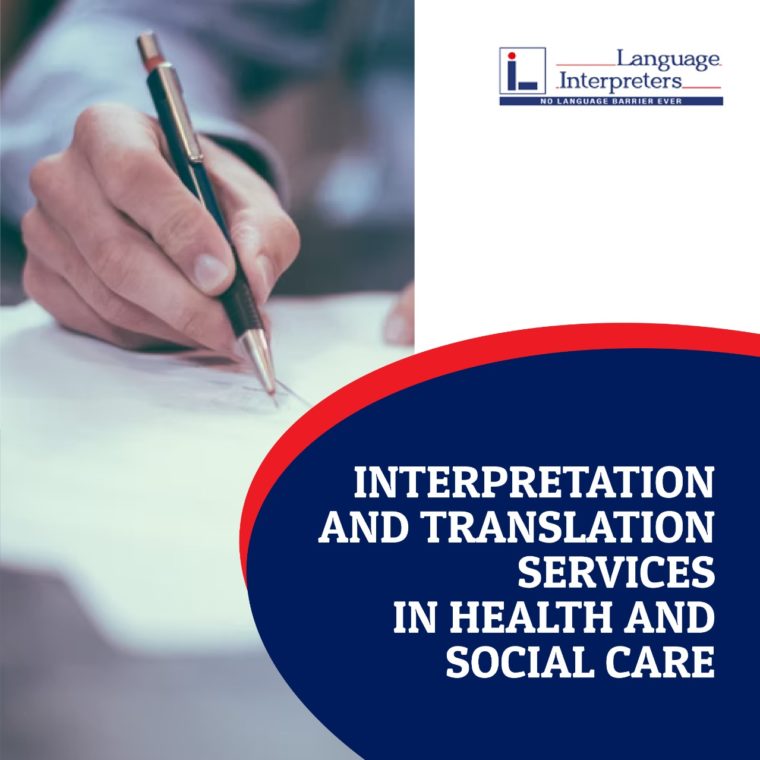Maintaining Patient Confidentiality during and after Interpreting and Translation
Maintaining Patient Confidentiality during and after Interpreting and Translation : Communication is the key to any universal line of work and throughout the world, language interpretation permits effective communication between individuals undoubtedly. Before we even start talking about interpreting and translating service let us understand the key difference between an interpreter and a translator. To keep it concise, an interpreter converts oral messages from one language to another and a translator converts written text from one language to another. Interpretation is usually performed in real-time. It is an extremely rapid process, whereas translation on the other hand is largely text-based and can be created prudently. Both services however intend to retain effective communication but have different limitations.
In healthcare, interpreters are accountable for providing face-to-face interpretation services between patients and providers merely to facilitate support for a treatment plan. This involves discussions between the patient, family members or a patient representative, and they serve to help provide information considering all aspects involved in inpatient care. Despite challenges, the major objective of health care interpreters is to provide language access to save lives and protect the health and well-being of patients.
Health care interpreters translate health care documents by orally translating a written document into the patient’s preferred language. They may perform them by doing a face-to-face interpretation, interpreting over the phone or through video calling (remote interpreting), depending on the need/urgency of the translation to be done. Health care interpreters often educate other members of the health care team regarding the duties, requirements, protocol, ethics and standards of practice involved in health care interpreting.
Health care interpreters work in a variety of health care settings, including hospitals, nursing homes, clinics, private offices and rehabilitation centres. With the advances in technology healthcare nowadays is available to all and is accessible by anyone and from anywhere, irrespective of the location. Many health care interpreters perform their work mostly onsite but now it is also performed over the telephone, using video technology to facilitate remote patient care and monitoring. They may offer these options on a 24/7 basis or in addition to on-site interpretation and translation service, depending on patients and healthcare providers requirements.
At all times the medical interpreter warrants a complete understanding between the parties. Bridging the cultural gaps between the patients and healthcare providers helps acquire adequate information effortlessly. In addition to this, the duties of a medical translator in a health care setting involves performing several translating tasks that include simplifying any terminologies merely to ensure that all medical information is understood by the patient and family. Some of the vital tasks include:
Translating Medical Information and Terminologies
A wide range of medical information and terminologies are involved and this must be translated accurately to a patient who speaks a language other than English. The key task of a medical interpreter is to interpretation and translation service all the critical medical information precisely to aid the patient make his own decisions aptly. Besides this medical interpreter also assists in translating medical documents like content regarding a procedure, consent forms, insurance claim forms and so on.
Maintaining Patient Privacy and Confidentiality
In healthcare, patients’ privacy and confidentiality must be preserved and conserved with utmost diligence following hospitals policies and procedures. The relationship between the healthcare provider and patient is based on trust and there is loads of information on the patient’s database. It is the responsibility of the healthcare provider to keep them confidential and prevent any misuse.
Establishing Positive Interactions
The medical interpreter strives to maintain the decorum of the healthcare setting by providing a calm, comfortable and promising atmosphere while they discuss any sensitive information. It is crucial to avoid any cultural misunderstandings if any between patients and healthcare providers.
Assisting in Follow-ups
A medical interpreter will assist patients with their follow-up as necessary on the phone with follow-up phone calls and check-ins, and accompanying patients to follow-up their appointments. The act of contacting a patient or caregiver at a later date after discharge is also a key responsibility of the healthcare provider/interpreter. This ensures checking patients progress and well-being, also aids to identify any misinterpretations to the questions, making further assessments and adjusting treatment plans.
Enhancing Self-Competence
Healthcare interpretation requires immense concentration and focus in their tasks. Training programs provide effective strategies for language professionals to become successful remote interpreters, absorb the process of remote interpretation and translation service, common challenges and solutions, expectations and performance requirements. These training programs aim to assist translators and interpreters in expanding their knowledge base, vocabulary and honing their skills for better performance and achievements.
Nonetheless, medical terminologies are challenging and difficult to understand. Not everyone can understand them easily. The medical interpreters at Language Interpreters are qualified professionals with effective communication skills who performs the task of conveying complex information at ease and precision into simple wordings. The translation and interpreting services offered by the team are fastidious and lawfully binding. Hence medical Interpreters are proficient in explaining even the most complicated medical terminologies and concepts to the patients/family thus aiding in providing the best care with utmost diligence meticulously.




